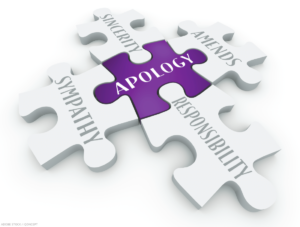 Mistakes are a part of life. In fact, they are a large part of my life. Whether uncovering inborn errors of immunity, teaching about diagnostic errors, identifying systemic lapses in high-quality care or correcting spelling errors in manuscripts, my entire being is centered on studying and examining mistakes. To a certain degree, I feel like I’ve gotten comfortable with the inevitability of mistakes, but this comfort has limits. I can rationalize a lot of imperfections in this world, but when it comes to personal shortcomings and how they may adversely affect people around me, I continue to feel uncomfortable.
Mistakes are a part of life. In fact, they are a large part of my life. Whether uncovering inborn errors of immunity, teaching about diagnostic errors, identifying systemic lapses in high-quality care or correcting spelling errors in manuscripts, my entire being is centered on studying and examining mistakes. To a certain degree, I feel like I’ve gotten comfortable with the inevitability of mistakes, but this comfort has limits. I can rationalize a lot of imperfections in this world, but when it comes to personal shortcomings and how they may adversely affect people around me, I continue to feel uncomfortable.
Naturally, that means I apologize a lot. I get a lot of apologies, too. About a month ago, I decided to reflect on what makes a good apology. Mustering all my quality improvement qualifications, I created a spreadsheet with five column headings: What was the apology? Who made the apology? How was the apology delivered? When was the apology delivered? And where does it go forward?
Because there is no curriculum for learning to apologize correctly and only a few resources with ambiguous advice, I decided that systematically documenting and examining apologies was worthwhile.
I updated the spreadsheet daily. Over 28 days, I wrote down 105 entries. Sixty-eight of them were rather small (e.g., I’m sorry I closed the door early. I’m sorry I’m late, everybody. I’m sorry I didn’t send that email earlier.). These incidents would probably be forgotten altogether, on both sides, if I hadn’t been counting them. Among the 37 that remained, 17 were apologies I delivered and 20 were ones I received.
To tell you the truth, I was initially surprised by the number of apologies. At the beginning, I anticipated about 20 in total over the month. But I quickly realized: I live in the Midwest, a notoriously polite region of the world, where apologies flow as freely as hellos, goodbyes and thank yous. The majority of the time, I’m not sure whether they even count as true apologies. Yet 37 is still a large number—more than one serious apology per day.
When I look at these 37, I see four core issues that seem to modulate what makes a good apology: 1) the heart and the brain; 2) framing the narrative; 3) the self and others; and 4) the speed of response. Let’s rheuminate on these …
From the Heart or From the Brain
It’s been said that a good apology comes from the heart.1 In my opinion, that is unambiguously true: A true apology reflects the innermost content of one’s heart. A true apology is meant to be a declaration of humility, unadorned by pretense. Certainly, that’s how I tried to approach apologies in the 17 instances in which I did the apologizing.



